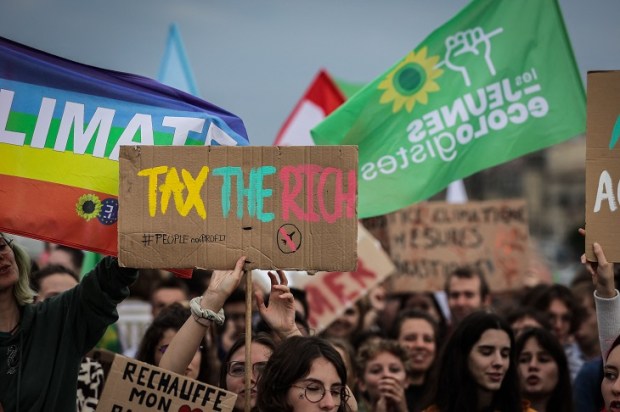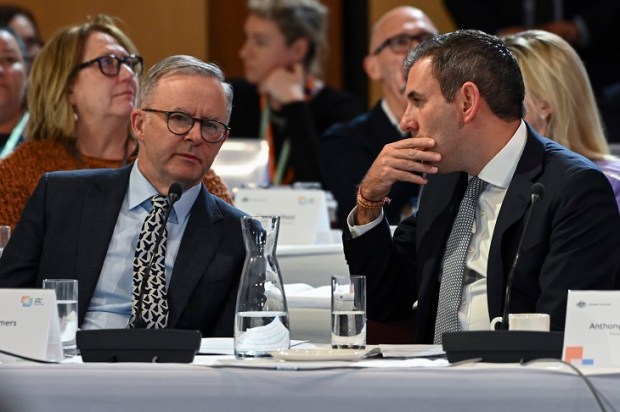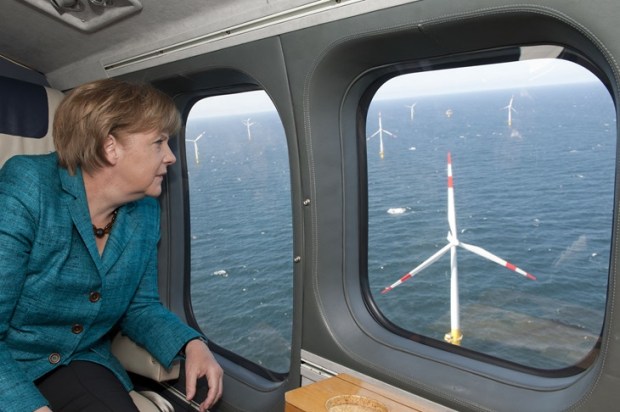Condemning those who have glued themselves to roads to create chaos, the (now former) UK Home Secretary Suella Braverman hit out at ‘the Guardian-reading, tofu-eating, Wokerati anti-growth coalition’. Her indignation about the economic damage caused by climate radicals is warranted, but she said nothing about the economic harm stemming from the fund-manager/governmental institutional wing of the anti-coal climate alarmists, which uses the Environment Social and Governance (ESG) pastiche as cover for its control aspirations.
Indeed, as she was speaking the Bank of England released its support package for firms facing difficulties due to the Ukraine war. UK energy companies looking to take advantage of this must disclose whether they have a Net Zero transition plan and, if so, deliver it to the Treasury within six months of the drawdown of funds, or before termination of the guarantee!
Australian governments have a similar co-partnering with the ESG-supported scam of wind and solar technologies. In recent days, that support has included preparing a ‘safeguard mechanism’, the syllogistic name for another carbon tax on the major CO2 emitting facilities that account for half of national emissions. In addition, the Commonwealth has announced funding subsidies for transmission support for renewables, including $1.5bn to fast-track renewable energy zones in Victoria and concessional finance for the $3.8 billion Marinus Link with Tasmania.
Australian state governments have adopted similar measures. The Victorian government has announced it will, in effect, renationalise the state’s electricity generation, in order to consolidate the removal of coal generation from the state’s supply sources. Electricity privatisation 25 years ago led to massive increases in efficiency – power outages were halved, bloated workforces downsized, and electricity prices for industrial users fell by 40 per cent.
Like Australian governments, ESG fund managers claim, as the custodians of individuals’ savings, to be in the business of repairing damage caused by capitalism. To this end, they have introduced new mechanisms to monitor and direct firms’ activities away from fossil fuel use. In support of this, the Australian Securities and Investments Commission is examining whether it should follow the lead of the US Securities and Exchange Commission and make reporting of climate change risks mandatory. The ESG corporate control movement has also enjoyed considerable support from international agencies like the World Bank and World Economic Forum.
The tentacles of the ESG reporting system create a parallel network that firms must administer. That involves in addition to selecting their inputs on the basis of price, quality, and availability they must also ensure the provenance of their chain of suppliers.
This emasculates the efficiency-creating mechanisms of the market as expressed simply by Leonard Read in I, Pencil, in which he explained how millions of tiny know-hows are configured without any human masterminding to create something as simple as a pencil. Read illustrates the impossibility of tracing this shifting amalgam of inputs even for a simple product like a pencil, an impossibility that remains even in today’s blockchain era. And attempting to manipulate it seriously distorts the efficiency that capitalism generates through the price system. Its impact is forcing firms to engage in wasteful activities.
Notwithstanding the magnitude of ESG funds – expected to control a third of global stocks – and all their official support, they are under pressure from the reality of markets and the shortages of reliable energy to which they have contributed. Triggered by the Ukraine war, oil and gas prices have soared and so has the value of the firms producing these fuels.
Australian top 200 shares are down 8.6 per cent while the energy index is up 38 per cent – and coal shares have actually doubled. One outcome is that, according to data collected by Canstar, two of the most anti-coal funds, Future Super and Spaceship, have this year seen the largest falls in value, 11.5 per cent and 18.5 per cent respectively. By contrast, four of the best five performers, including number one and two, Perpetual Wealth Focus Super Plan and Australian Retirement Trust Super Savings, have no climate protection policies. While virtue signalling has a powerful place, there are limits to which people will tolerate their savings custodians’ decisions causing a diminution of their wealth.
In addition, recognising the detrimental effect of such funds on their economies, several US states are cutting BlackRock, the largest and most vocally pro-ESG investment fund, out of government business.
Such factors have caused analysts to downgrade BlackRock‘s stock, causing something of an about-turn in the firm’s public stance on energy.
The transformation of Western nations’ electricity industries resulting from Woke investment managers and subsidies to renewables and penalties on gas and coal has brought massive cost increases.
For Australia, since 2018, subsidised renewables have forced up the price raw electricity threefold, unsurprising when:
-
- as Alinta’s Jeff Dimery points out, it costs $8 billion in wind, solar, and batteries to replace a $1 billion coal generator;
-
- transmission costs, according to the government’s ‘Powering Australia’ blueprint, will need to increase by fourfold; and
-
- there are considerable increased costs from interventions by the market regulators just to keep the power on. It will be astonishing if Australian customer price increases are not comparable to the threefold increase in the UK foreshadowed for when the price cap (costing 120 billion pounds a year) is removed.
Got something to add? Join the discussion and comment below.
Get 10 issues for just $10
Subscribe to The Spectator Australia today for the next 10 magazine issues, plus full online access, for just $10.


























Comments
Don't miss out
Join the conversation with other Spectator Australia readers. Subscribe to leave a comment.
SUBSCRIBEAlready a subscriber? Log in